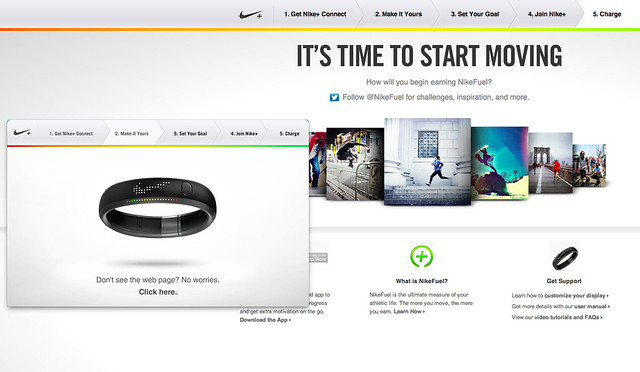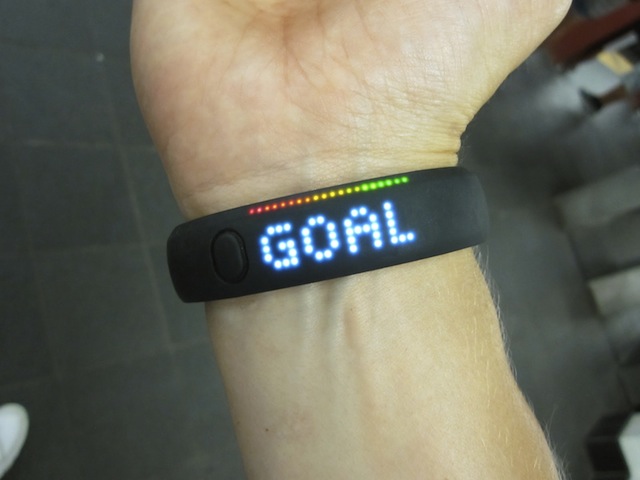
This slot is what secures the second component of the SportBand, which is actually a USB thumb drive. Just like any other watch band, pretty much, but with one exception: opposite the watch band holes is a small rectangular socket in the rubber. The Nike+ SportBand consists of two separate components. You're still going to have to put in the physical labor, but they'll take care of the number crunching by timing your workouts and figuring out how much exercise you're actually getting. Beyond motivation, these devices make exercising simpler. When you can't have a workout buddy, being able to post scores and compete with your friends is the next best thing. Nike+ lets you set goals for your workouts, helps you promote your successes to social networks and features friends lists so you can challenge your pals. Nike+ and other exercise tracking systems are designed to motivate you. Nike was one of the first companies to offer exercise tracking technology with Nike+, which uses a motion sensor to track the wearer's workout sessions and automatically catalog important information like calories burned, distance traveled and time spent working up a sweat. Since the 2000s, technology has started to do its part in getting us up off the couch, out of the office and into the park for some bodily movement. But working out can be tough! Building up the motivation to exercise is the first great hurdle.

Of course, ultimately, weight loss comes down to burning more calories than you consume. In the end just one of the 25,000 punters wanted their money back, and Download’s debut was deemed an overwhelming success.We grumble. ‘We were a headliner down in our first year, which was a complete disaster,’ he says. Festival booker Andy Copping was convinced it was going to be a catastrophe after the headliner, Limp Bizkit, cancelled just weeks before. So just like the IRL event, you had to be there… And there has been a festival every year since, including during the pandemic, when virtual events were staged with the launch of Download TV, which, despite its name, couldn’t be downloaded to watch at a later date.

Tickets in that first year included a special code that allowed festival-goers to download tracks for free. Three years earlier, Metallica had successfully sued Napster (then a peer-to-peer filesharing pioneer). Back in 2003, downloading music was still a controversial concept.

Glad you asked: the reason makes for an interesting trip down a musical memory lane. These days it has grown into a four-day spectacular and has, in the past, spawned spin-off events in Paris, Sydney, Melbourne and Germany. Download spans four days but used to be a two day camping festival (Picture: Joseph Okpako/WireImage)


 0 kommentar(er)
0 kommentar(er)
